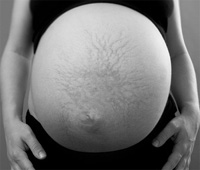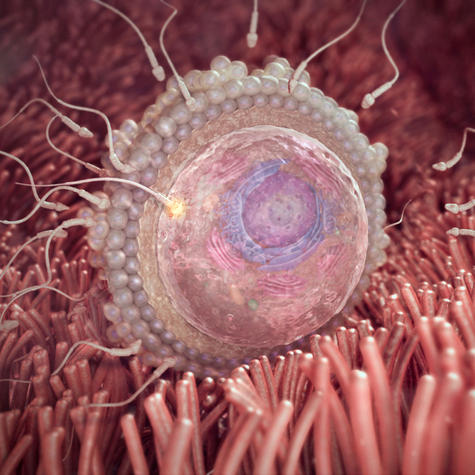Your Baby Development: 6 Weeks Old
How big is your baby? This week your baby will be weighing around 91/2 pounds and measuring 211/4 inches if he/she was of average size at birth. Your baby is gaining more control over his/her neck muscles. You may notice He/She shifts his/her head more often now to look at what is around him/her. He/She can also hold his/her head up for a few seconds now, and may extend his/her legs and arms when he/she holds his/her head up. Your baby may be smiling on his/her own now! He/She has been making expressions that may appear to be smiles since birth, but these would not have been of a social nature. You may also notice that baby is showing more excitement when it comes to regular activities such as bath time or play time. He/She may demonstrate this by cooing or making other noises while kicking his/her legs. Your baby will be more visually alert now when in a sitting position. He/She will begin to associate lying down with sleeping, so when baby is awake keep him/her in a sitting position, or semi upright, for as long as possible, and he/she will enjoy seeing what is around him/her.Baby Development Milestones This Week
Physical Development
- Can hold head up at 45 degree angle for a few seconds while lying on stomach
- Muscle tone is improving
- Stare vaguely at surroundings
Mental & Social Development
- Studies movement of his/her own hands
- May become excited in anticipation of objects
- May smile when you smile
- Will stay awake for longer if interacting with someone
- Don’t offer a bottle until you have breastfed for at least 4 weeks
- Let someone else, such as your partner, give your baby the bottle first
- Offer the first bottle when he’s not hungry, if you wait till he/she is starving, then he/she may be too distressed to eat
- Introduce the bottle slowly. Drop a little milk on his/her lips from the bottle, then wait till he/she open his/her mouth before you put the bottle in
- Your baby may take to the bottle better if you hold him/her in a different position than when you nurse him/her.
- When bottle feeding your baby, site him/her in a more upright position.
- Don’t loose control. Be patient when you are trying to start your baby bottle feeding. If your baby gets angry or upset, take a break and try again later
- Encourage baby to take in fluid
- Let him/her rest
- Don’t dress him/her to warmly
- Give him/her acetaminophen if he/she seems uncomfortable. DO NOT exceed the recommended dosage, follow the instructions and measure carefully
- Pay special attention to any other symptoms which your baby may display
- Your baby is less than 3 months old with a temperature higher than 101F (38.3C) taken rectally.
- Has a fever of 104F (40C) and acts ill
- Cries inconsolably
- Is lethargic or difficult to wake
- Has breathing difficulties
- Has sore throat or difficulty swallowing
- Shows signs of improvement after giving him/her acetaminophen
- Has a fever for more than 72 hours
- Was better but the fever returned
- Seems to have ear pain
- Has difficulty or pain when urinating
- Has a febrile seizure (seizure accompanied by fever)
Keep your baby safe from germs by avoiding crowded areas. Ask people to look, but not to touch. If family members or friends have a cold, ask them to wash their hands before they hold baby.
Baby Week6



